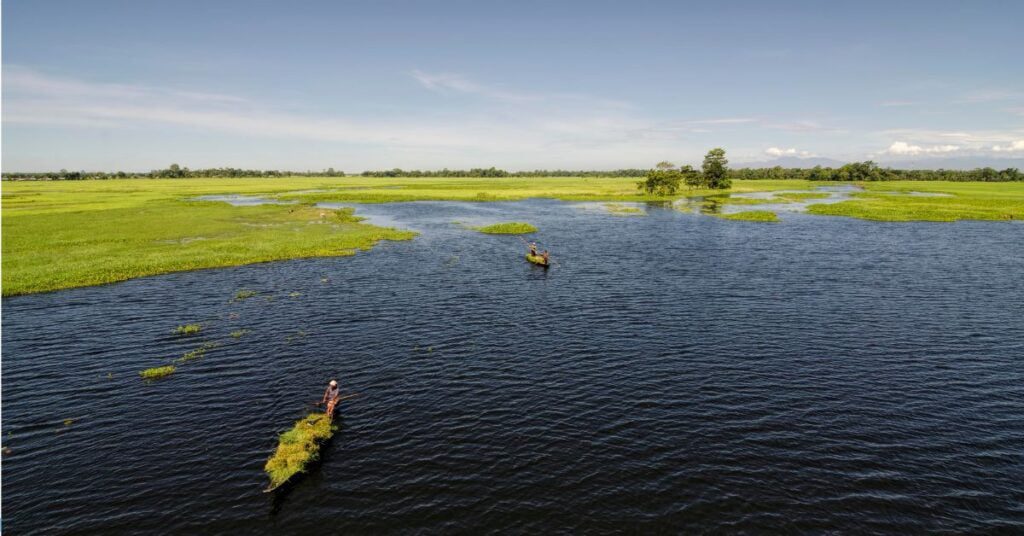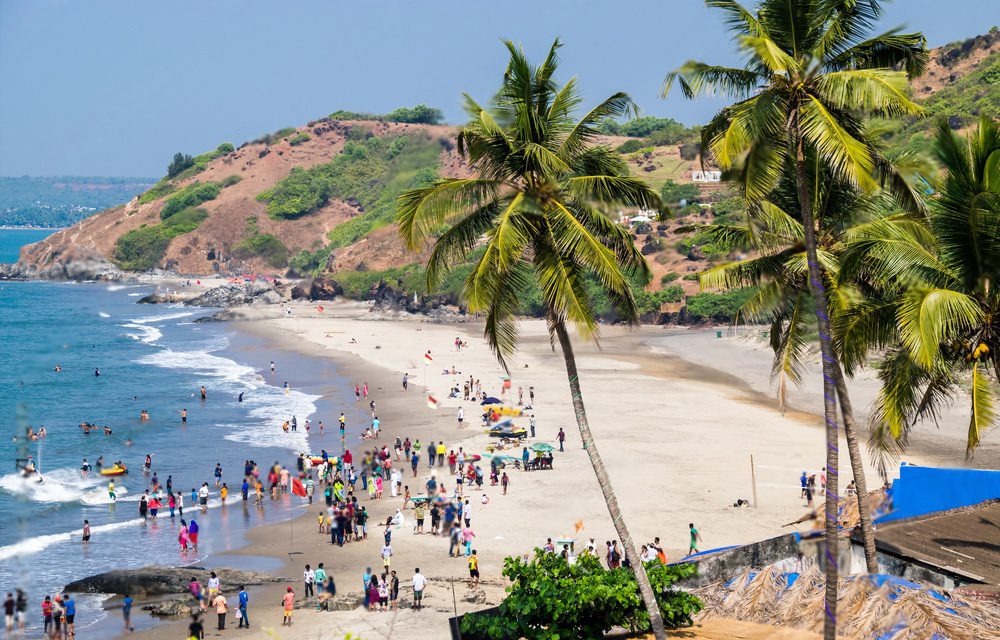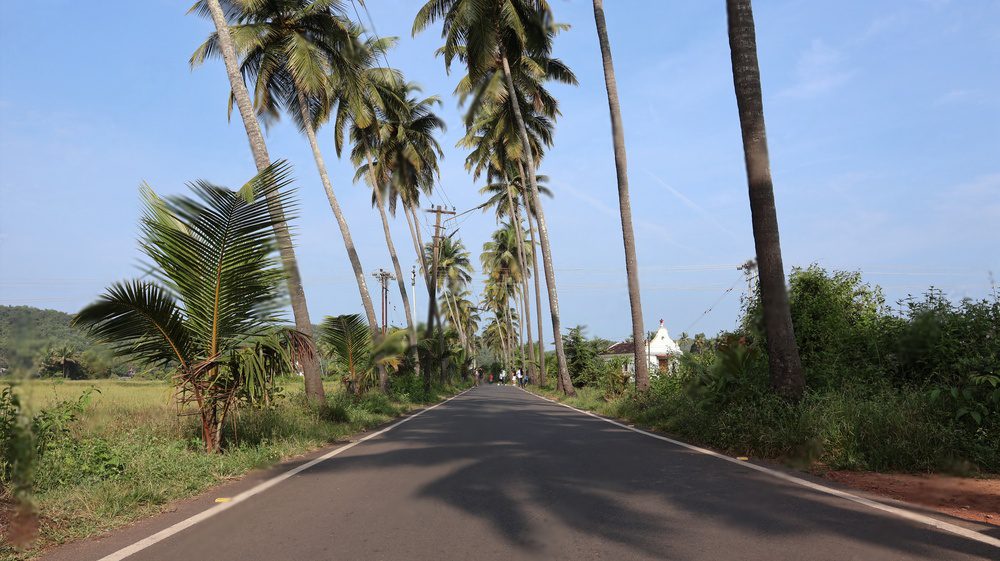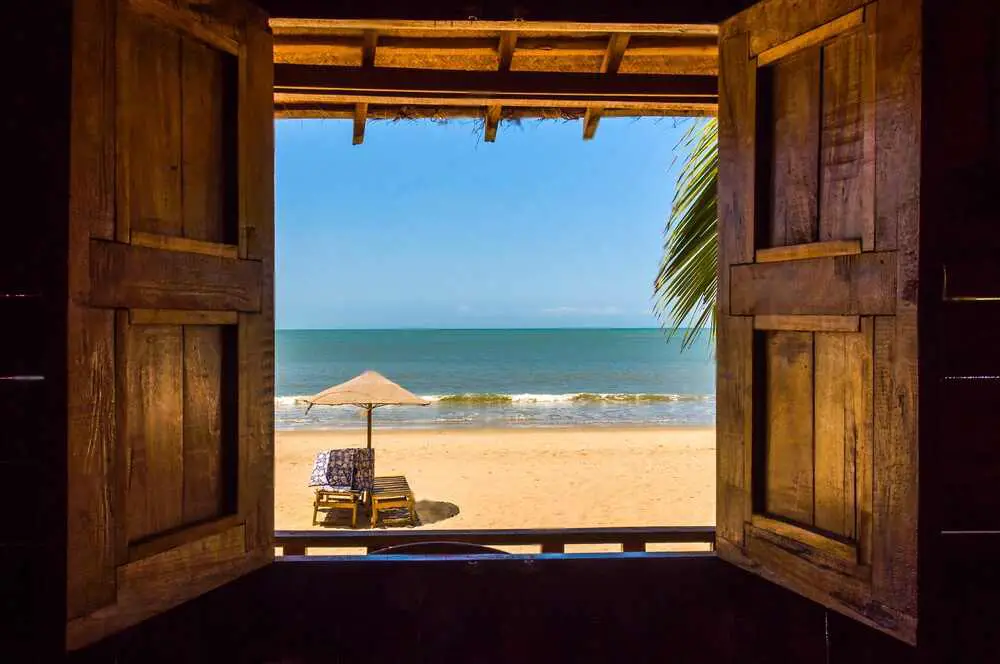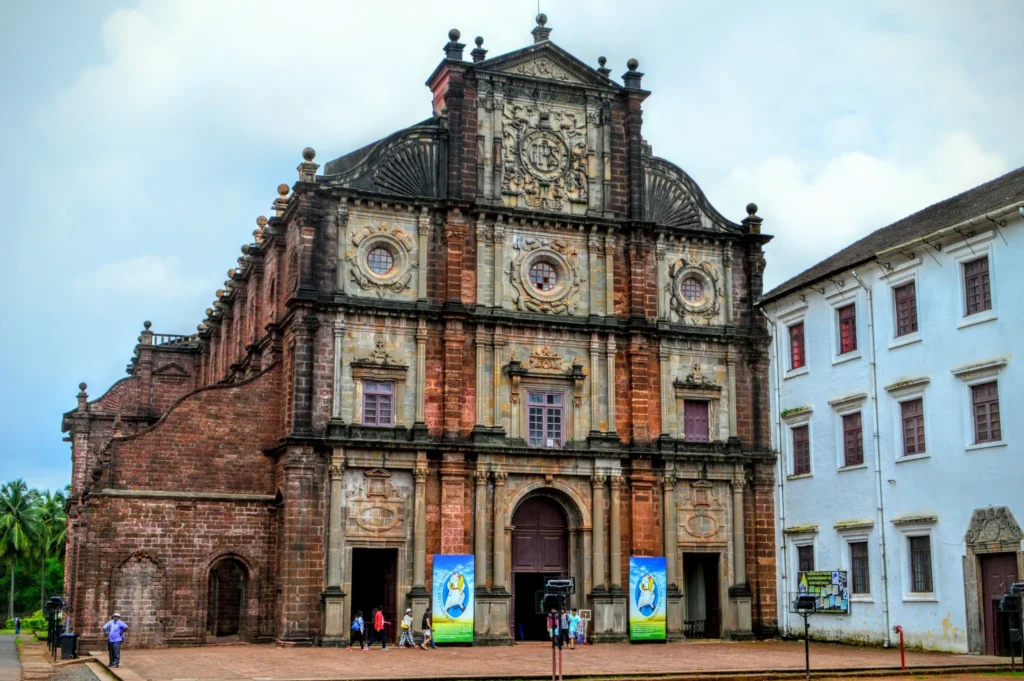Majuli Island: Imagine a place where a mighty river embraces a verdant island, a tapestry woven with vibrant culture and breathtaking beauty. This isn’t a dream, but Majuli Island, nestled in the heart of Assam. As the world’s largest river island, Majuli is more than just a landmass; it’s a mesmerizing gem waiting to be explored.
This captivating destination is a haven for those seeking a unique blend of experiences. Immerse yourself in the rich tapestry of Assamese culture, where ancient traditions weave their magic. Explore the serenity of the island’s lush green landscapes, a sanctuary for nature lovers. Lose yourself in the tranquility of the waterways, or delve into the spiritual heart of the island at its historic satras, the monasteries that whisper tales of times past.
How to reach:
Taking Flight:
Jorhat Airport (JRH), also known as Rowriah Airport, is your aerial gateway to Majuli. Located just outside Jorhat city, it offers connections to major Indian cities like Guwahati, Kolkata, and Delhi. Upon landing, taxis whisk you 14 kilometers to Neemati Ghat, the ferry port to Majuli, in a breezy 30-40 minute ride. For a budget-friendly option, hop on an auto-rickshaw.
Train Travel:
Prefer trains? Jorhat Town Railway Station (JTTN) is your closest stop. Trains from Guwahati, Tinsukia, and Dibrugarh conveniently connect to Jorhat. From the station, a quick 20-30 minute taxi or auto-rickshaw ride takes you 12 kilometers to Neemati Ghat.
Road Trip:
Hitting the road? No worries! Jorhat is well-connected by road to major Assamese cities and towns. Buses and private vehicles can take you to Jorhat from Guwahati (300 kilometers away), Dibrugarh (138 kilometers away), or other nearby locations. Remember, your journey to Majuli culminates at Neemati Ghat, the ferry port that awaits.
Best time to visit:
Winter Wonderland (October to March):
Embrace perfect sightseeing weather! Winter paints Majuli with cool, pleasant temperatures ranging from 10°C to 25°C. This makes it the ideal time to explore the island’s treasures and immerse yourself in its rich tapestry. The festive spirit soars during these months, with the vibrant Raas Leela celebrated in November. Witness traditional dance dramas and delve into the island’s electrifying culture.
Summer Serenade (April to June):
Seeking warmth? Summer beckons with temperatures between 20°C and 35°C. While days can get toasty, evenings offer a welcome respite with cooler breezes. This is also the shoulder season, so expect fewer crowds. Explore the island in tranquility, perfect for those who crave a peaceful escape.
Monsoon Magic (July to September):
Witness Majuli at its most verdant! The monsoon transforms the island into a lush green paradise, nourished by heavy rainfall. Nature enthusiasts will be captivated by the island’s breathtaking beauty. However, be aware of potential flooding during this season, which could disrupt travel plans. It’s wise to check the forecast and local conditions before your visit.
Attractions:
Dakhinpat Satra:
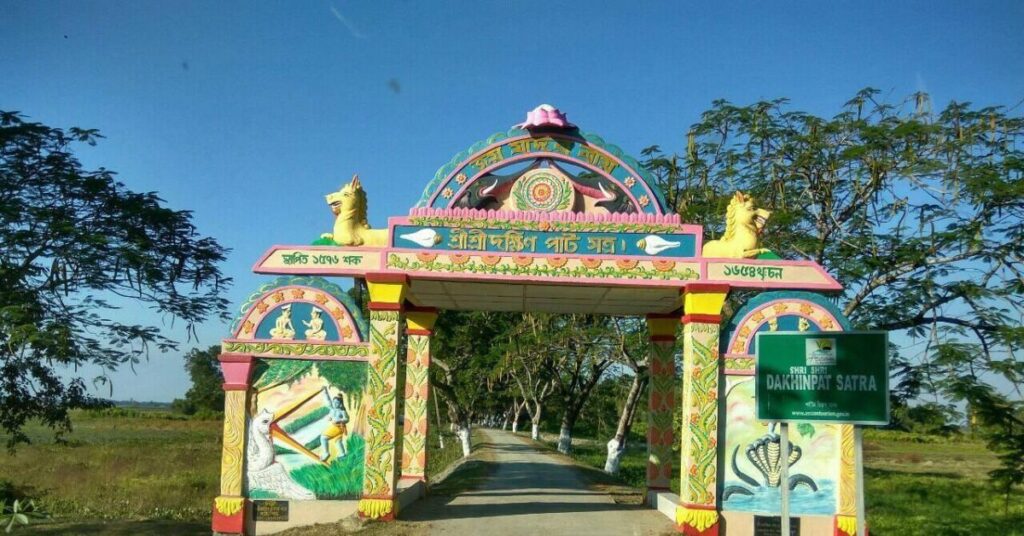

Steeped in history and vibrant culture, Dakhinpat Satra stands as a crown jewel on Majuli Island. Established in 1584 by Vamshigopal, this revered monastery is a beating heart of Assamese Vaishnavism, a branch of Hinduism founded by the iconic Srimanta Sankardev.
Step within the gates and be transported to a world rich in tradition. Dakhinpat Satra is renowned for its grand annual Raas Leela festival, a spectacle that unfolds like a living tapestry. Witness dramatic dance performances depicting the life of Lord Krishna. Be captivated by the vibrant costumes, intricate masks, and the graceful movements that tell timeless stories. These performances draw devotees and visitors from all corners, each eager to immerse themselves in the magic.
Garhmur Satra:
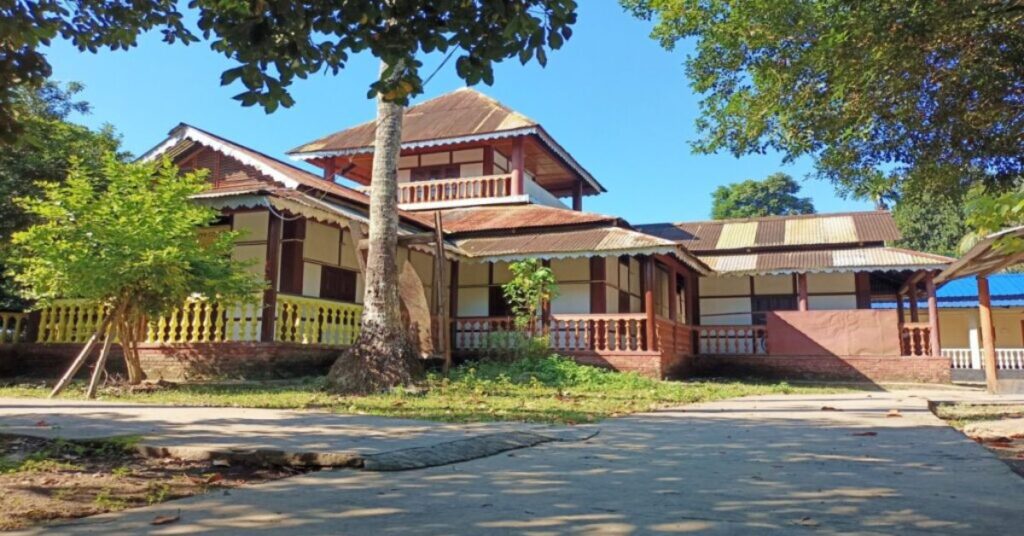

Unfolding another chapter in Majuli’s rich tapestry is Garhmur Satra, a prominent Vaishnavite monastery founded by Lakshmikantadeva. Steeped in history and cultural significance, this Satra has served as a guardian of Assamese heritage. Step inside and discover a treasure trove of ancient manuscripts, religious texts, and artifacts, each whispering tales of times gone by.
Garhmur Satra’s legacy extends beyond its walls. The annual Rasotsava festival pulsates with life, a vibrant celebration of music, dance, and theatrical performances. Witness the stories of Lord Krishna come alive through mesmerizing choreography and captivating narratives. This festival is a major draw, attracting devotees and visitors eager to immerse themselves in the island’s vibrant culture.
Auniati Satra:
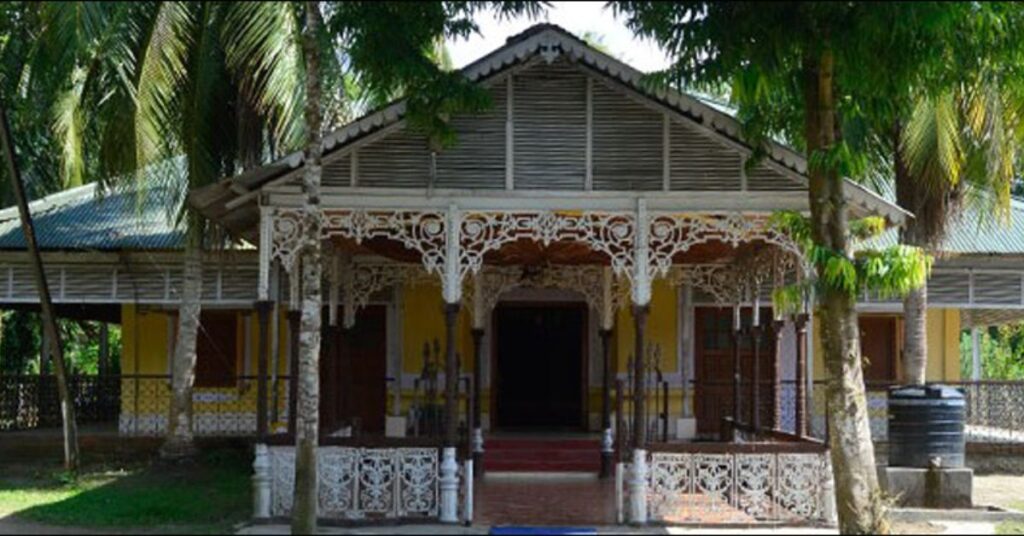

The ancient heart of Majuli Island at Auniati Satra, founded by Niranjan Pathakdeva. Standing tall as one of the island’s oldest and most influential monasteries, Auniati Satra is a treasure trove waiting to be explored. Step inside and embark on a journey through time. Auniati Satra is renowned for its vast collection of ancient artifacts – everyday utensils, exquisite jewelry, and handcrafted items – each whispering stories of the island’s fascinating past. These silent witnesses offer a glimpse into the historical and cultural evolution of Majuli, a chance to connect with the island’s very essence.
But Auniati Satra transcends its role as a museum. It’s a vibrant center for the practice and propagation of Neo-Vaishnavism, a spiritual path centered on the teachings of Srimanta Sankardev. Immerse yourself in the profound wisdom of this tradition and witness its enduring legacy. The annual Paal Naam festival pulsates with devotion and enthusiasm.
Mishing Villages:
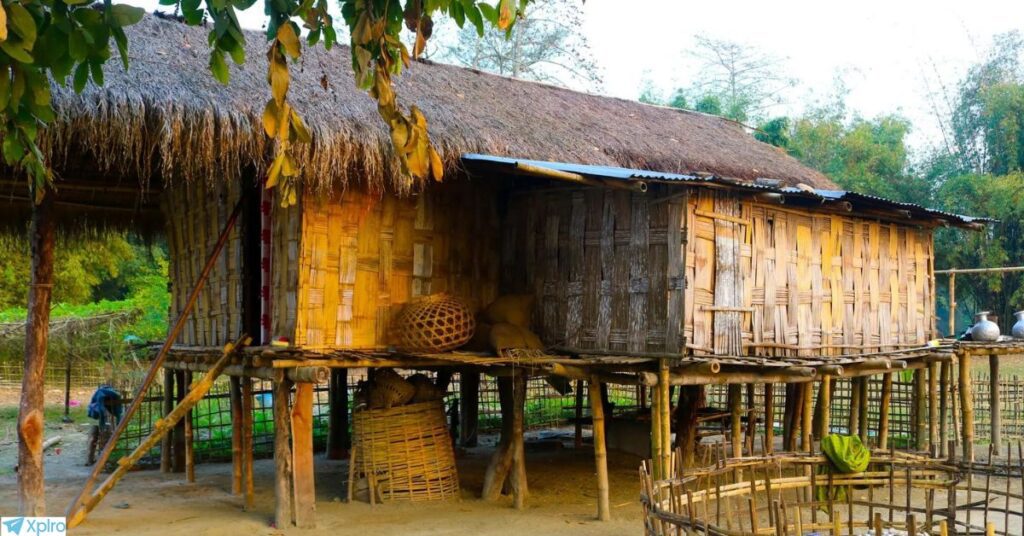

Venture beyond the monasteries and delve into the vibrant tapestry of Majuli’s indigenous soul. The Mishing villages, like whispered secrets waiting to be heard, offer a captivating glimpse into the traditional life of this remarkable tribe.
These villages are a testament to resilience. Characterized by their unique stilt houses, they stand tall against the island’s frequent monsoon floods. A necessity becomes an art form, each house a testament to the Mishing people’s ingenuity and deep connection to their environment.
Local Experiences:
Cultural Exploration:
- Witness the grace and rhythm of traditional Sattriya dance and music at vibrant performances held in the Satras.
- Immerse yourself in the art of pottery by visiting local villages, observing skilled artisans, and even trying your hand at creating your own piece.
- Discover the intricate process of weaving traditional textiles on handlooms during demonstrations in Mishing villages.
- Participate in mask-making workshops at Samaguri Satra to learn about these essential elements of religious plays and dance dramas.
- Experience the vibrant energy of the Raas Leela festival and other local celebrations, gaining insights into the island’s cultural heritage.
- Explore the rich history, art, and spirituality of Assam at the Sankardev Kalakshetra, a cultural center dedicated to Srimanta Sankardev.
Nature and Adventure:
- Enjoy a serene boat ride on the Brahmaputra River, soaking in the island’s tranquil beauty.
- Embark on birdwatching expeditions in the wetlands and water bodies, spotting a variety of avian wonders.
- Take guided walks through the unique Molai Forest, learning about its flora, fauna, and inspiring story.
- Discover the lifestyle and customs of the Mishing community through village tours and interactions with locals.
- Witness breathtaking sunsets over the Brahmaputra River from popular spots like Tengapania.
Local Experiences:
- Join local fishermen in their traditional fishing practices to gain insights into the island’s fishing culture.
- Delight your taste buds with authentic Assamese and Mishing cuisine, including flavorful fish curry, rice beer, and bamboo shoot preparations.
- Shop for unique souvenirs like handmade pottery, woven textiles, and traditional masks from local artisans.
- Deepen your understanding of Assamese Vaishnavism through spiritual discourses and rituals at the Satras.
Travel tips:
Preparation and Planning
Before embarking on your Majuli adventure, consider these essential tips:
- Weather Check: Avoid the monsoon season (July to September) due to potential flooding.
- Travel Insurance: Purchase comprehensive travel insurance covering medical emergencies and trip cancellations.
- Advance Booking: Book accommodations well in advance, especially during festivals.
Getting to Majuli
- Pack Light: Opt for lightweight luggage due to limited transportation options.
- Cash and Cards: Carry sufficient cash as ATMs may be limited. Credit/debit cards might not be widely accepted.
Exploring the Island
- Eco-Friendly Transport: Rent bicycles or motorbikes for eco-friendly and flexible exploration.
- Public Transport: Utilize shared auto-rickshaws and buses for budget-friendly travel, but be prepared for basic conditions.
Where to Stay
- Sustainable Choices: Support eco-friendly lodges and homestays that prioritize sustainability.
- Cultural Immersion: Experience local life by staying in traditional homestays.
Health and Safety
- Hydration: Stay hydrated by carrying a reusable water bottle.
- Insect Protection: Use insect repellent to guard against mosquitoes.
- Medical Preparedness: Bring necessary medications and a basic first-aid kit. Check for required vaccinations.
Respecting the Local Culture
- Modest Attire: Dress modestly, especially when visiting religious sites.
- Photography Etiquette: Seek permission before photographing people or property.
- Language Appreciation: Learn basic Assamese or Mishing phrases to show respect.
Environmental Responsibility
- Reduce Plastic: Minimize plastic use by carrying reusable bags.
- Proper Disposal: Dispose of waste responsibly or carry it with you.
- Water Conservation: Conserve water as it’s a precious resource.
Immerse Yourself in Local Culture
- Respectful Participation: Participate respectfully in festivals and ceremonies.
- Support Artisans: Purchase handicrafts directly from local artisans.
- Learn from Locals: Engage with locals to gain insights into their traditions and way of life.
Conclusion
Majuli Island, a cultural and spiritual haven on the Brahmaputra River, invites you to explore the rich tapestry of Assamese Vaishnavism and Mishing traditions. Discover ancient Satras, witness breathtaking landscapes, and immerse yourself in the vibrant local culture. From serene beauty to lively festivals, Majuli offers unforgettable experiences. Embrace the island’s warm hospitality, support sustainable practices, and create lasting memories. Start planning your adventure with Xplro.com.
FAQs
What is the ideal time to visit Majuli Island?
- The ideal time to visit Majuli Island is from October to March. During these months, the weather is pleasant, and the risk of flooding is minimal, making it perfect for exploring the island.
How do I reach Majuli Island?
- To get to Majuli Island, first travel to Jorhat in Assam by flight or train. From Jorhat, you can take a taxi or bus to Neemati Ghat, where you will board a ferry to Majuli. The ferry ride typically takes about an hour.
Are there accommodations available on Majuli Island?
- Yes, there are several accommodation options on Majuli Island, including eco-friendly lodges, guesthouses, and traditional homestays with local families. Booking in advance is recommended, especially during peak seasons and festivals.
What are the must-visit attractions on Majuli Island?
- Key attractions on Majuli Island include the Satras (monasteries) like Dakhinpat Satra, Garhmur Satra, Kamalabari Satra, and Auniati Satra, as well as Mishing villages, Pottery villages, Tengapania, Molai Forest, and Samaguri Satra.
Is Majuli Island safe for tourists?
- Yes, Majuli Island is generally safe for tourists. However, it is advisable to take standard precautions such as keeping an eye on your belongings, avoiding isolated areas at night, and staying updated on local weather conditions.
What kind of cultural experiences can I have on Majuli Island?
- On Majuli Island, you can enjoy traditional dance and music performances, participate in local festivals, visit Mishing villages to learn about their lifestyle and weaving techniques, and attend pottery and mask-making workshops.
What local foods should I try on Majuli Island?
- While visiting Majuli Island, try traditional Assamese dishes like fish curry, bamboo shoot preparations, rice beer (apong), and various Mishing tribe delicacies. Local eateries and homestays often provide authentic, home-cooked meals.
Can I rent a bicycle or motorbike to explore Majuli Island?
- Yes, you can rent bicycles and motorbikes on Majuli Island. These are convenient and eco-friendly ways to explore the island at your own pace.
Are there any health precautions I should take before visiting Majuli Island?
- It’s recommended to carry a basic first-aid kit and any necessary medications. Using insect repellent to protect against mosquitoes is advisable, and staying hydrated is important. Check with your healthcare provider about any necessary vaccinations before your trip.
Is English widely spoken on Majuli Island?
- While Assamese and the Mishing language are primarily spoken on Majuli Island, many locals involved in tourism can communicate in basic English. Learning a few phrases in Assamese can be helpful and appreciated by the locals.
Can I participate in any local festivals on Majuli Island?
- Yes, Majuli Island hosts several vibrant festivals, such as Raas Leela, which features traditional dance dramas depicting the life of Lord Krishna. These festivals offer a unique opportunity to immerse yourself in the island’s cultural heritage.
How can I contribute to sustainable tourism on Majuli Island?
- You can support sustainable tourism by staying in eco-friendly lodges, minimizing the use of plastics, disposing of waste responsibly, respecting local customs and traditions, and supporting local artisans by purchasing their handicrafts
